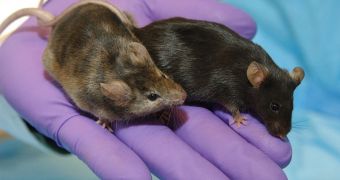The international scientific community may soon have access to new types of animal models for major depressive disorder (MDD), say investigators at the University of Pittsburgh School of Medicine.
Researchers here say that they were recently able to create a new mouse model that can replicate MDD with great efficiency, and therefore be of tremendous use for research groups around the world.
Studying depression in animals rather than humans is a very complex task, scientists say, as quantifying the reactions that mice or rats have to certain stimuli or medication is tremendously difficult.
The thing that separates the new type of mice from others is the fact that they carry a very rare genetic mutation. This mutation was demonstrated in human studies to be present in all people suffering from MDD. This is indicative of a link, and experts are intent on finding it.
Details of the new research were published in the May 19 online issue of the American Journal of Medical Genetics Part B: Neuropsychiatric Genetics EarlyView. The UPSM team hopes that colleagues around the world will be able to use the mice to discover events that may led to the onset of MDD.
“Major depressive disorder is a leading cause of suffering, disability and premature death from all causes including suicide,” explains Pitt School of Medicine professor of psychiatry George Zubenko, MD, PhD.
“While the cause currently is unknown, twin and adoption studies indicate that genetic factors account for 40 to 70 percent of the risk for developing this common disorder,” adds the expert, who is also the lead author of the journal entry.
“In this report, we describe how we constructed a laboratory mouse strain that mimics the brain mechanism that leads to major depression in humans, rather than symptoms,” he goes on to say.
The mouse models features some of the most common symptoms associated with MDD in humans, including alterations of brain anatomy, gene expression, behavior, as well as increased infant mortality.
“These findings support the role of the genetic variant in the development of MDD, and affirm the mutant mouse strain as a model of MDD worthy of further study,” Dr. Zubenko reveals further,
Though drugs to fight depression exist today, they are relatively inefficient, in the sense that they do not work on all patients, or elicit the same effects in these groups. A better understanding of the causes leading to MDD could also lead to new therapies, Science Blog reports.

 14 DAY TRIAL //
14 DAY TRIAL //